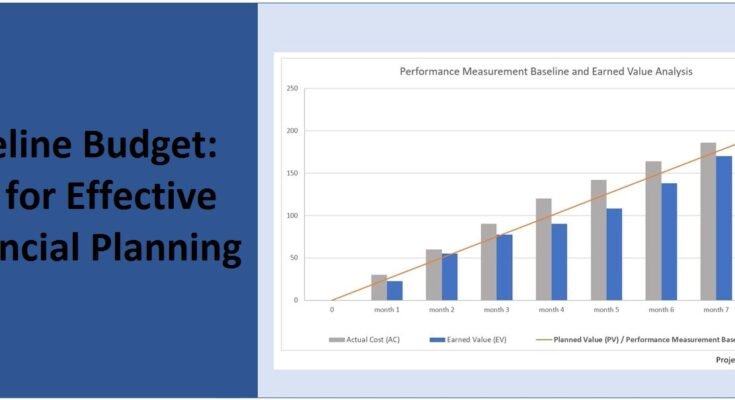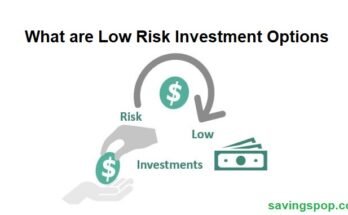A baseline finances refers to the initial estimate of challenge charges at the task’s outset. It serves as a benchmark in opposition to which actual prices and progress are measured throughout the task lifecycle. A baseline budget uses cutting-edge spending stages as a foundation for destiny funding requirements, assuming that destiny budgets will align with modern-day expenditure stages.
Why is Baseline Budgeting Important for Individuals and Businesses?
- Stability: For individuals, it provides a stable framework for managing personal finances. By basing future budgets on current spending, one can better plan for expenses and savings.
- Predictability: Businesses benefit from baseline budgeting as it offers predictability in financial planning. It helps in setting realistic goals and making informed decisions based on existing spending patterns.
- Resource Allocation: Both individuals and businesses can allocate resources efficiently. By knowing where money is currently being spent, they can prioritize areas that require more investment or cut back on unnecessary expenses.
- Flexibility: Baseline budgeting allows for flexibility in adjusting budgets as circumstances change. It provides a solid foundation while still allowing for adaptation to new opportunities or challenges.
Components of a Baseline Budget Explained
Hey there! Let’s dive into the components of a baseline budget in simple terms.
- Income: This is the cash you expect to receive, like your salary, freelance earnings, or another source of earnings. It’s essential to have a clean image of your profits to plot your price range effectively.
- Fixed Expenses: These are the everyday fees that live the equal every month, like rent or loan bills, insurance charges, and subscription offerings. Knowing your fixed expenses enables you to allocate your earnings successfully.
- Variable Expenses: Unlike fixed charges, variable costs can trade from month to month. These encompass groceries, utility bills, transportation expenses, enjoyment, and dining out. Tracking those charges helps in adjusting your finances as needed.
Must Read: What is a Baseline Budget in Project Management?
Savings and Investments:
Allocating a part of your earnings towards financial savings and investments is critical for destiny’s monetary stability. It can consist of contributions to savings money owed, retirement funds, and investment portfolios.
- Emergency Fund: Setting aside cash for surprising fees or emergencies is vital. It acts as a protection net and prevents you from dipping into your financial savings or using credit score cards in times of need.
- Debt Repayment: If you have any debts, inclusive of credit score card balances, pupil loans, or automobile loans, budgeting for debt repayment is important. Paying off money owed step by step allows you to improve your monetary health.
- Discretionary Spending: This includes non-vital expenses like buying, hobbies, vacations, and enjoyment. While it is vital to enjoy existence, coping with discretionary spending ensures you live within your budgetary limits.
- Review and Adjust: Regularly assess your baseline price range to music your spending, assess your monetary dreams, and make changes as wished. This flexibility enables us to stay on the right track and adapt to converting monetary circumstances.
In precis, baseline finances accommodate income, fixed and variable expenses, financial savings, emergency price range, debt reimbursement, discretionary spending, and everyday opinions for powerful monetary management. Understanding these additives empowers you to make informed economic selections and gain your monetary desires.
Steps to Create a Baseline Budget
Hey there! Creating a baseline budget is like laying down the groundwork for your financial plans. It helps you understand your current spending habits and sets a benchmark for future expenses. Let’s dive into the steps to create a baseline budget in simple terms:
- Gather Your Financial Information: Start by collecting all your financial documents, like bank statements, bills, pay stubs, and receipts. This step gives you a clear picture of your income and expenses.
- List Your Income Sources: Write down all the sources of income you have, including your salary, freelance gigs, rental income, or any other money coming in regularly.
- Track Your Expenses: Record every expense, big or small. Categorize them into essentials (like rent, groceries, and utilities) and non-essentials (like dining out, and entertainment).
- Calculate Your Total Income and Expenses: Add up all your income sources and subtract your total expenses. This gives you a snapshot of your financial situation.
Identify Areas for Adjustment:
Look for places where you can reduce or optimize spending. This could be reducing dining-out expenses, finding cheaper utility plans, or renegotiating subscriptions.
- Set Financial Goals: Determine your short-term and long-term financial goals, such as saving for a vacation, buying a home, or building an emergency fund.
- Allocate Funds to Each Category: Based on your income and goals, allocate specific amounts to each expense category. This creates a roadmap for your spending throughout the budget period.
- Review and Adjust Regularly: Regularly review your budget to track your progress & make adjustments as needed. Life changes, so your budget should be flexible to accommodate new priorities or unexpected expenses.
- Stick to Your Budget: The most crucial step is to stick to your budget once it’s created. This discipline helps you stay on track toward your financial goals.
Benefits of Using a Baseline Budget
Baseline budgeting is a smart financial approach that offers numerous benefits for individuals and businesses alike. Let’s look at some of the important advantages:
- Financial Stability: A baseline budget offers a solid basis by placing clear spending limits based on existing monetary facts. This helps keep away from overspending and ensures that funds are allocated efficiently.
- Improved Planning: With a baseline budget, you can plan successfully. Knowing your baseline prices allows you to allocate a budget for financial savings, investments, and surprising fees, giving you better economic control.
- Goal Achievement: By tracking costs in opposition to a baseline, you could screen development in the direction of financial dreams. Whether it is saving for a vacation, buying a home, or beginning a commercial enterprise, a baseline budget allows you to live on target and achieve your goals.
- Resource Optimization: Baseline budgeting promotes resource optimization by highlighting regions where adjustments may be made. It permits you to perceive pointless expenses, reallocate the budget to precedence areas, and maximize using available assets.
- Risk Management: With a clear baseline finance, you could better control economic dangers. By understanding your economic baseline, you can put it together for emergencies, fluctuations in earnings, or unforeseen fees without disrupting your ordinary financial balance.
- Decision-Making Support: Baseline budgets offer precious insights for choice-making. Whether it’s assessing the feasibility of new projects, evaluating funding opportunities, or prioritizing spending, baseline finances serve as a reliable reference point.
Challenges in Baseline Budgeting
Baseline budgeting, while beneficial in many ways, also comes with its fair share of challenges that individuals and businesses need to navigate. Let’s delve into these challenges in a friendly and straightforward manner:
- Inflexibility: Baseline budgeting sets the baseline at current spending levels. This can be a challenge when circumstances change, such as unexpected expenses or economic fluctuations. It may not easily accommodate adjustments without thorough review and approval processes. Imagine having to stick to a budget set in stone when life throws unexpected curveballs!
- Risk of Overspending: Since baseline budgeting assumes that future budgets will align with current spending, there’s a risk of overspending. This can happen when actual expenses exceed the baseline due to unforeseen factors. It’s like trying to fit a square peg into a round hole – sometimes, it just doesn’t quite work out as planned.
- Lack of Incentives for Efficiency: When budgets are based on past spending levels, there might be less motivation to find cost-saving measures or improve efficiency. After all, if the budget remains the same regardless of savings achieved, where’s the incentive to tighten the belt or innovate financially?
Difficulty in Prioritizing Spending:
Baseline budgeting may lead to challenges in prioritizing spending. It might be challenging to allocate funds effectively to areas that need them the most when budgets are primarily determined by historical spending patterns. It’s like trying to juggle multiple priorities without a clear roadmap.
- Potential for Inaccuracies: Relying solely on past spending as the baseline can lead to inaccuracies in budget projections. Changes in market conditions, technology advancements, or business strategies may not be adequately reflected, leading to budgeting blind spots.
- Complexity in Long-Term Planning: Baseline budgeting can add complexity to long-term planning. Forecasting future needs and aligning them with baseline budgets requires careful analysis and forecasting skills. It’s akin to navigating a maze without a map – challenging and time-consuming.
Common Mistakes in Baseline Budgeting to Avoid
Baseline budgeting is crucial for individuals and businesses to plan their finances effectively. However, several common mistakes can hinder its success if not addressed. Let’s dive into these mistakes in simple terms:
- Overlooking Small but Cumulative Expenses: One of the biggest blunders is ignoring those tiny expenses that seem insignificant individually but add up over time. These could include daily coffee runs, subscription services, or impulse buys. While they may not seem like much at first glance, they can significantly impact your budget when accumulated.
- Failing to Account for Inflation or Cost Increases: Another pitfall is not considering inflation or potential cost increases in your budget projections. Prices of goods and services tend to rise over time, and if your budget doesn’t factor in these adjustments, you might find yourself short on funds when prices go up.
- Ignoring the Need for Periodic Budget Reviews: Setting a baseline budget is just the beginning. Many people make the mistake of creating a budget and then forgetting about it until a major financial issue arises. It’s essential to regularly review your budget to ensure it aligns with your current financial situation and goals. This allows you to make necessary adjustments & stay on track.
By being mindful of these common mistakes, you can strengthen your baseline budgeting approach and make more informed financial decisions. Remember to keep an eye on both the big picture and the small details to achieve financial stability and success.
Tools and Resources for Baseline Budgeting
Baseline budgeting involves setting current spending levels as a reference point for future financial planning. Here are some tools, books, websites, and professionals that can assist with baseline budgeting:
1. Recommended Software and Apps
- Mint: A famous budgeting app that tracks costs and enables create budgets based totally on modern spending.
- YNAB (You Need a Budget): Focuses on 0-primarily based budgeting, in which every dollar is assigned a cause.
- Quicken: Offers comprehensive budgeting features and integrates with bank money owed for real-time monitoring.
2. Useful Books and Websites
- “The Total Money Makeover” by way of Dave Ramsey: Provides sensible advice on budgeting, debt discount, and monetary planning.
- Investopedia: Offers articles and publications on budgeting, investing, and private finance.
- The Balance: Provides budgeting templates, guides, and financial guidelines for individuals and groups.
3. Financial Advisors and Consultants
- Certified Financial Planners (CFPs): Offer customized budgeting techniques, funding advice, and retirement planning.
- Accountants: Assist with monetary document-keeping, tax planning, and financial analysis for groups and individuals.
- Financial Consultants: Guide budgeting techniques, financial purpose-placing, and investment possibilities.
These gear and sources cater to different budgeting desires, from people managing personal budgets to companies strategizing their monetary plans. Exploring those alternatives can help streamline budgeting procedures and acquire economic dreams successfully.
Conclusion and Future Trends in Baseline Budgeting
Baseline budgeting is an effective device for managing finances and planning for destiny. With expertise in its components and techniques, you could create sensible and effective finances that allow you to attain your monetary dreams. As the economic era continues to evolve, new gear and techniques for baseline budgeting will emerge, making it less complicated to manipulate budgets and plan for the future.
In the coming years, we can count on seeing greater advanced budgeting software that integrates with different economic tools, supplying an extra complete view of your budget. Additionally, synthetic intelligence and machine-gaining knowledge will play a larger function in predictive evaluation, making it simpler to forecast future monetary desires and make informed selections.
By staying knowledgeable about those traits and continuously improving your budgeting strategies, you can ensure that your price range continues to be stable and that you are organized for whatever the future holds. Baseline budgeting will remain a crucial tool for financial planning and control, with its recognition of historic records and practical projections.




